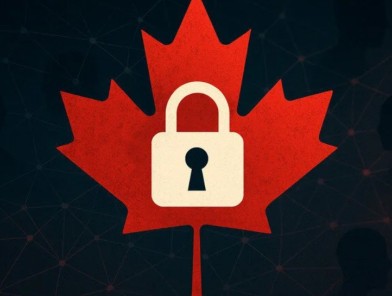Missouri has always had a way of finding itself in the middle of national conversations, but this time, it isn’t about elections, football, or barbecue rivalries. Instead, it’s the internet specifically, how the state wants to regulate adult content. Starting November 30, a new age-verification rule will come into force, and it has the potential to reshape not only how adult sites operate in Missouri, but also how millions of users experience the online world.
What Exactly Is Changing?
For decades, adult websites have relied on a simple, laughably easy barrier: the “Are you 18 or older?” pop-up box. We’ve all seen it. Click “yes” and you’re in, no questions asked. Missouri’s Attorney General is now saying: not anymore. Newly appointed Attorney General Catherine Hanaway announced that the regulation, approved earlier this year, will officially take effect on November 30.
The new rule doesn’t apply to every corner of the internet, but it does target a large swath of adult platforms. Specifically, it covers commercial websites and platforms where at least one-third of the content is pornographic or sexually explicit. These sites must implement real, enforceable age-verification systems — such as third-party tools requiring government-issued ID or risk steep consequences.
And the penalties are no joke. Websites that fail to comply could face civil fines of up to $10,000 per day. The message from Hanaway’s office is clear: keeping minors away from explicit content is no longer a courtesy, it’s a legal obligation.
Why Is This Happening Now?
At the heart of this push is the concern that minors are being exposed to adult material far too easily. With smartphones in their hands and endless access to the internet, teens today don’t need to sneak magazines from the corner store. They just need to tap a screen. Lawmakers argue that stronger digital safeguards are overdue, and Missouri wants to lead the charge.
But while the intention seems noble protecting kids the execution is anything but simple. Raising the barrier between minors and adult content inevitably raises questions about how far the government should go in regulating online spaces.
The Big Privacy Question
Here’s where things get tricky. Age verification online means sharing personal information. That could mean scanning and uploading a driver’s license, passport, or other official ID. Critics of Missouri’s law are sounding alarms about where this information will be stored, who will be responsible for securing it, and what happens if it falls into the wrong hands.
Cybersecurity experts warn that databases containing sensitive personal data are a prime target for hackers. And when the subject matter is adult content, the stakes get even higher. Imagine the fallout if thousands of users’ private data were leaked. The risk of embarrassment, blackmail, or worse is exactly what fuels opposition to these rules.
How the Industry Is Reacting
Adult websites, directories, and independent creators are watching closely. For them, the new rule isn’t just an administrative change it’s a financial and logistical burden. Implementing verification systems costs money, and maintaining user trust is harder than ever when privacy is on the line.
Independent creators may face the toughest challenge. Many of them rely on loyal audiences who value discretion. Asking fans to upload personal IDs could scare them off entirely. For these creators, it’s not just about complying with the law it’s about survival in an industry that already operates under heavy stigma.
Missouri Joins a Growing Trend
Missouri is not an outlier here. Louisiana has already enacted age-verification laws, and states like Utah and Texas have joined the movement. Each new law sparks the same debates: is this about protecting kids, or is it creeping government overreach dressed up as morality?
This is also not just an American issue. The United Kingdom has floated similar proposals in recent years, sparking global debates on how far regulators should go in controlling access to adult material. Everywhere this conversation emerges, the lines between safety, censorship, and privacy blur.
The Cultural Divide
The clash over Missouri’s rule highlights a broader cultural divide. On one side, there are parents and advocacy groups who feel urgent action is needed to shield kids from early exposure. On the other side are privacy advocates, industry leaders, and everyday internet users who worry that once we normalize ID checks for adult sites, it could extend to other corners of the web.
Think about it: if it starts with porn, what’s next? Gambling? Violent video games? Political forums? Once the door is open, it’s hard to close.
What Happens After November 30?
When the rule takes effect, Missouri will become a test case for how such regulations play out in practice. Will users adapt and continue to consume content as usual, or will traffic drop off sharply? Will adult businesses be able to handle the cost and responsibility of new verification systems, or will some simply block Missouri altogether?
The weeks and months after November 30 will give us answers, but one thing is already clear: the age of casual, anonymous access to adult content is ending in Missouri. Whether this will lead to meaningful protection for minors or simply spark a new wave of privacy battles remains to be seen.
A New Digital Era
Like it or not, Missouri’s decision is part of a global shift. Governments, industries, and users are wrestling with the same question: how do we balance protection and freedom in the digital age? For adult content, the answer is now tied to ID cards, databases, and a whole lot of legal fine print.
And while supporters and critics will continue to battle it out in the headlines, one truth is undeniable the internet is changing. The way we think about access, privacy, and responsibility is being rewritten, one state law at a time.













